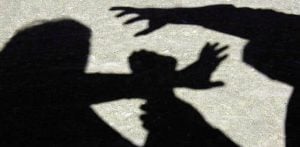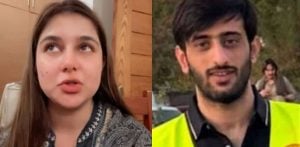"You’d never guess he carried any sadness inside.”
A haunting final message from an Air India pilot has come to light, just days after investigators revealed a possible deliberate act behind the deadly crash of Flight AI171.
Captain Sumeet Sabharwal died along with 259 others when the Boeing 787 Dreamliner crashed shortly after takeoff on June 12.
Before heading to the cockpit that morning, Sabharwal made a chilling comment to a security guard at his Mumbai residence.
He told Sunil Lokhande: “Please, take care of papa. I will be back soon.”
It was the last thing he said at home.
Lokhande recalled their brief exchange outside Jal Vayu Vihar:
“I can’t forget that last moment, when he ran his hand through his hair, like he always did, and said, ‘How are you Mr Lokhande. Please, take care of papa, and I will be back soon’.
“He smiled and went away. You’d never guess he carried any sadness inside.”
Moments after Flight 171 took off, both engines shut down. The plane crashed within 30 seconds, killing 241 passengers and crew, along with 19 people on the ground. One passenger survived.
Now, early findings from the investigation suggest the crash may not have been accidental.
According to US officials reviewing flight data, the guarded fuel control switches in the cockpit were manually flipped to the “cut-off” position, one second apart. They were only turned back on ten seconds later, far too late to recover power.
Cockpit recordings reportedly captured the co-pilot asking: “Why did you cut off?”
Sabharwal replied, with an unsettling calm: “I didn’t.”
Experts say the switches are physically guarded to prevent accidental activation and can only be moved deliberately.
Captain Steve Scheibner, an aviation analyst, said: “When you place both fuel cutoff switches to cut off, that will fuel-starve the engines and they’ll both flame out.
“There is no universe where there’s any procedure ever in the history of commercial flight where you place both fuel control switches to cut off, leave them there for 10 seconds, right after rotate.
“There was a human hand behind this. The aircraft did what it was told to do.”
The Aircraft Accident Investigation Bureau (AAIB) confirmed the switches were flipped in its preliminary report but has not formally assigned blame.
Sabharwal, who logged more than 15,000 hours of flying time, had never been involved in a major incident. Colleagues described him as calm, competent and deeply private.
However, his mental health is now under scrutiny.
While he passed a Class I medical exam in September, Indian investigators are reportedly probing claims that he previously took leave due to depression.
Sabharwal’s personal life had seen upheaval in recent years. After his mother died in 2022, he separated from his wife and relocated from Delhi to Mumbai to care for his elderly father.
Just three days before the crash, he reportedly told his father, Pushkaraj, that he planned to resign from Air India and move home permanently.
His former colleague Neil Pais said: “He was actually considering early retirement in the next couple of years.
“His father is very old, and he was going to look after him full time. That was the plan.”
At flying school, Sabharwal was nicknamed “Sad Sack” because of his melancholic eyes. Friends say he never wore his emotions publicly. Some called him a hero. Others now question what might have been going on beneath the surface.
The US National Transportation Safety Board (NTSB) is assisting with the probe. American sources say that if the crash had happened on US soil, a criminal investigation would likely have been launched.
Air India has declined to comment on the latest findings but confirmed full cooperation with the investigation.
A spokesperson said: “We continue to mourn the loss.
“Given the active nature of the investigation, we are unable to comment on specific details and refer all such enquiries to the AAIB.”






























































